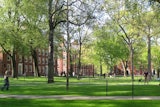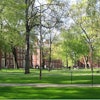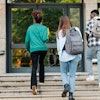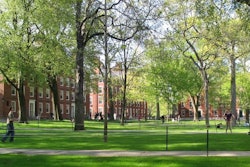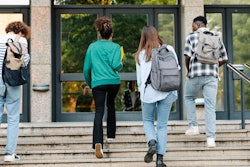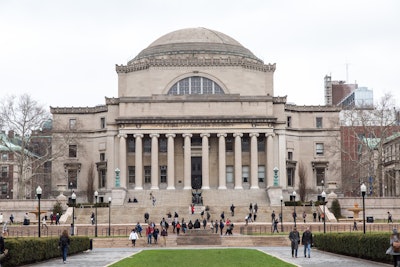
The university's Board of Trustees endorsed the reforms after meeting with federal agencies to discuss changes the school has implemented. In a letter to the academic community, the trustees stated they believe these changes align with the school's values and mission while addressing federal concerns.
"Members of our community and external stakeholders have raised concerns about a multitude of issues, such as antisemitism, discrimination, harassment, and bias," the trustees wrote. "We take these concerns seriously, and we are committed to creating a better environment on campus."
The policy changes appear to directly respond to demands from the Trump administration, which had called for the university to enforce disciplinary policies, implement protest rules, ban masks, hold student groups accountable, empower campus law enforcement, and review its Middle East studies programs and admissions processes.
Under the new framework, Columbia will hire 36 new campus police officers specifically trained to handle protests, with authority to remove or arrest protesters. The university will continue cooperating with the New York Police Department as needed.
New protest regulations require all demonstrators to show university ID when asked and prohibit face coverings intended to conceal identity. The university has also banned protests inside and immediately outside academic buildings, with the provost's office gaining expanded authority over student disciplinary actions related to demonstrations.
These changes follow last spring's events when students and non-university affiliates occupied Hamilton Hall, leading to over 110 arrests. According to the university document, Columbia has "expelled, suspended or temporarily revoked the degrees of students who occupied Hamilton Hall in April 2024," with additional disciplinary proceedings against other encampment participants ongoing.
Perhaps most significantly for academic freedom concerns, Columbia is appointing a new senior vice provost to conduct a "thorough review" of its curriculum in regional areas, beginning with Middle East studies courses. The university has committed to expanding "intellectual diversity" among faculty to "assure fairness in Middle East studies" and pledged "institutional neutrality" university-wide.
The university also promised to review its admissions policies, noting declining enrollment among Jewish and Black students.
Columbia's concessions raise important questions for higher education institutions nationwide about balancing free speech, academic freedom, and federal funding requirements. The Trump administration has threatened to cut federal money to other colleges accused of tolerating antisemitism amid the ongoing Israel-Hamas conflict.
The New York Civil Liberties Union's executive director, Donna Lieberman, previously characterized the funding freeze as an unconstitutional government effort "to coerce colleges and universities into censoring student speech and advocacy that isn't MAGA-approved, like criticizing Israel or supporting Palestinian rights."
Earlier this month, the administration directed immigration officers to arrest Mahmoud Khalil, a Columbia graduate and Palestinian activist who played a central role in campus protests. The government cited his alleged "activities aligned to Hamas," though Khalil has not been charged with a crime. His detention has had a chilling effect on college campuses, where students report feeling constrained in exercising their constitutionally protected right to free speech.
Whether Columbia's policy changes will lead to the restoration of the $400 million in federal funding remains unclear.
On Monday, faculty with the Columbia chapter of the American Association of University Professors (AAUP) held a vigil in response to Columbia's concessions to several demands from the Trump administration.
The faculty—dressed in black and holding signs that read “Defend Freedom of Speech,” also called on the university to make dramatic changes to student protest, discipline and admissions policies, as well the placement of the Middle Eastern, South Asian, and African Studies Department under academic receivership in exchange for the restoration of $400 million in federal funding.
